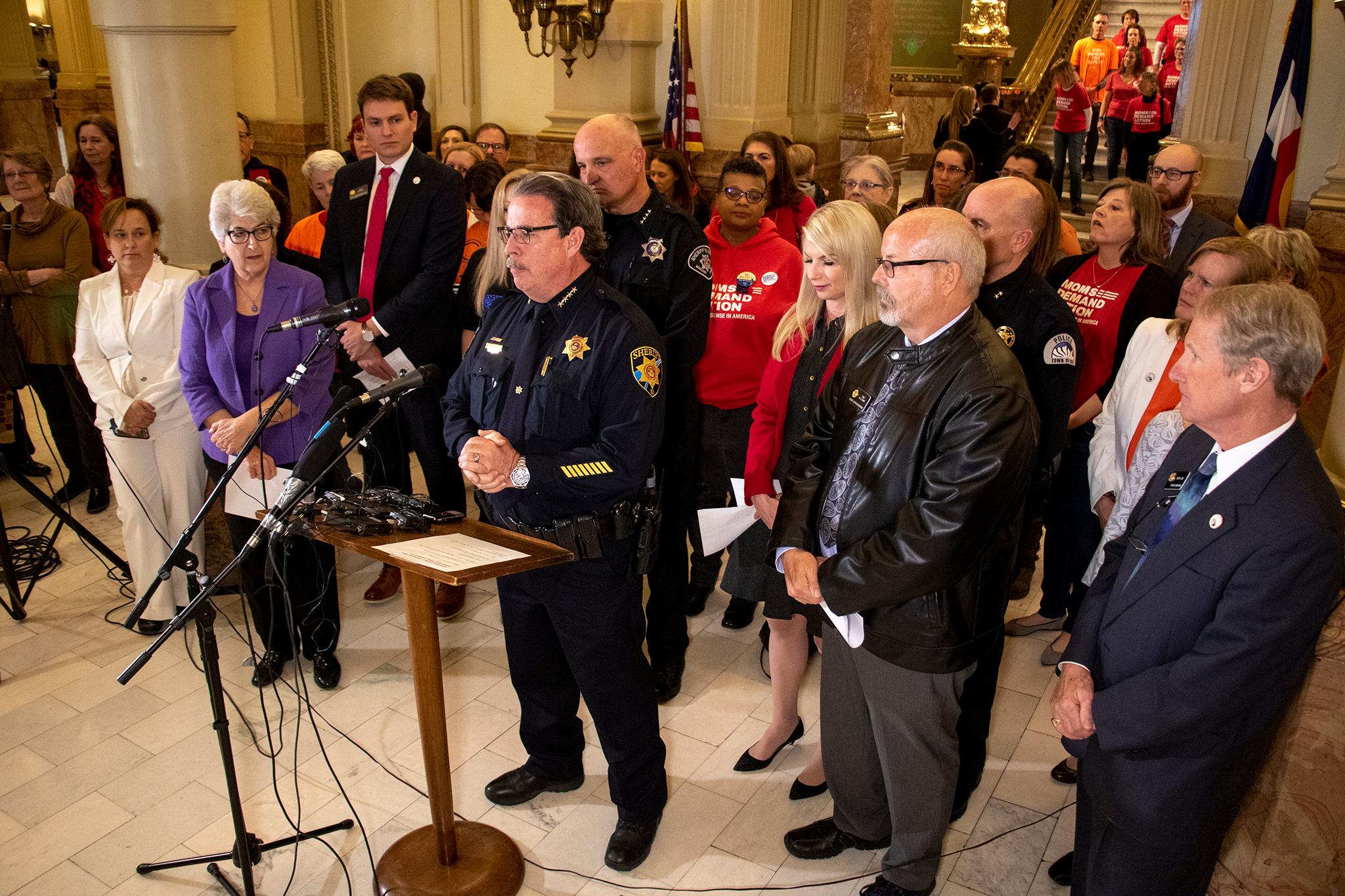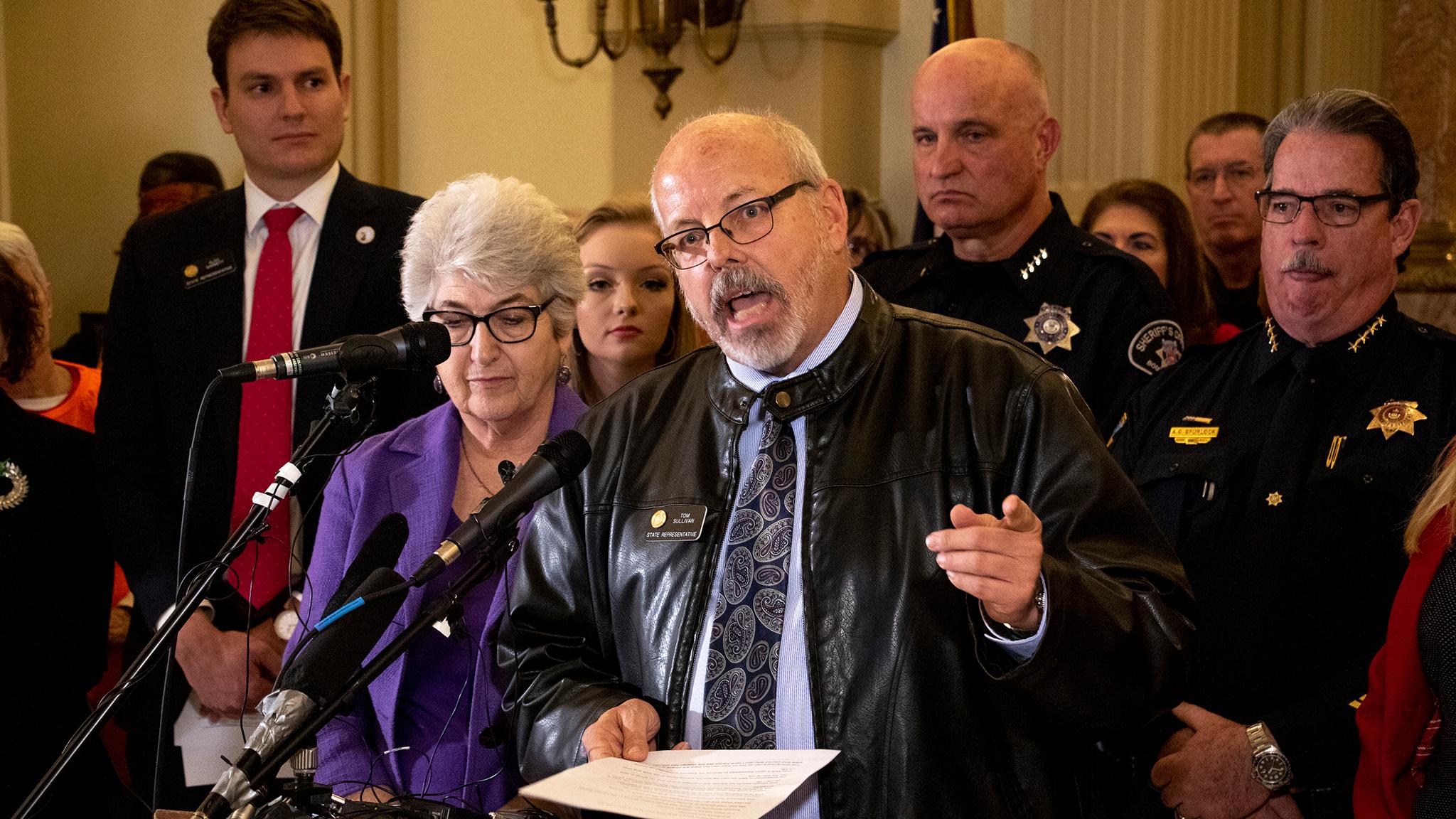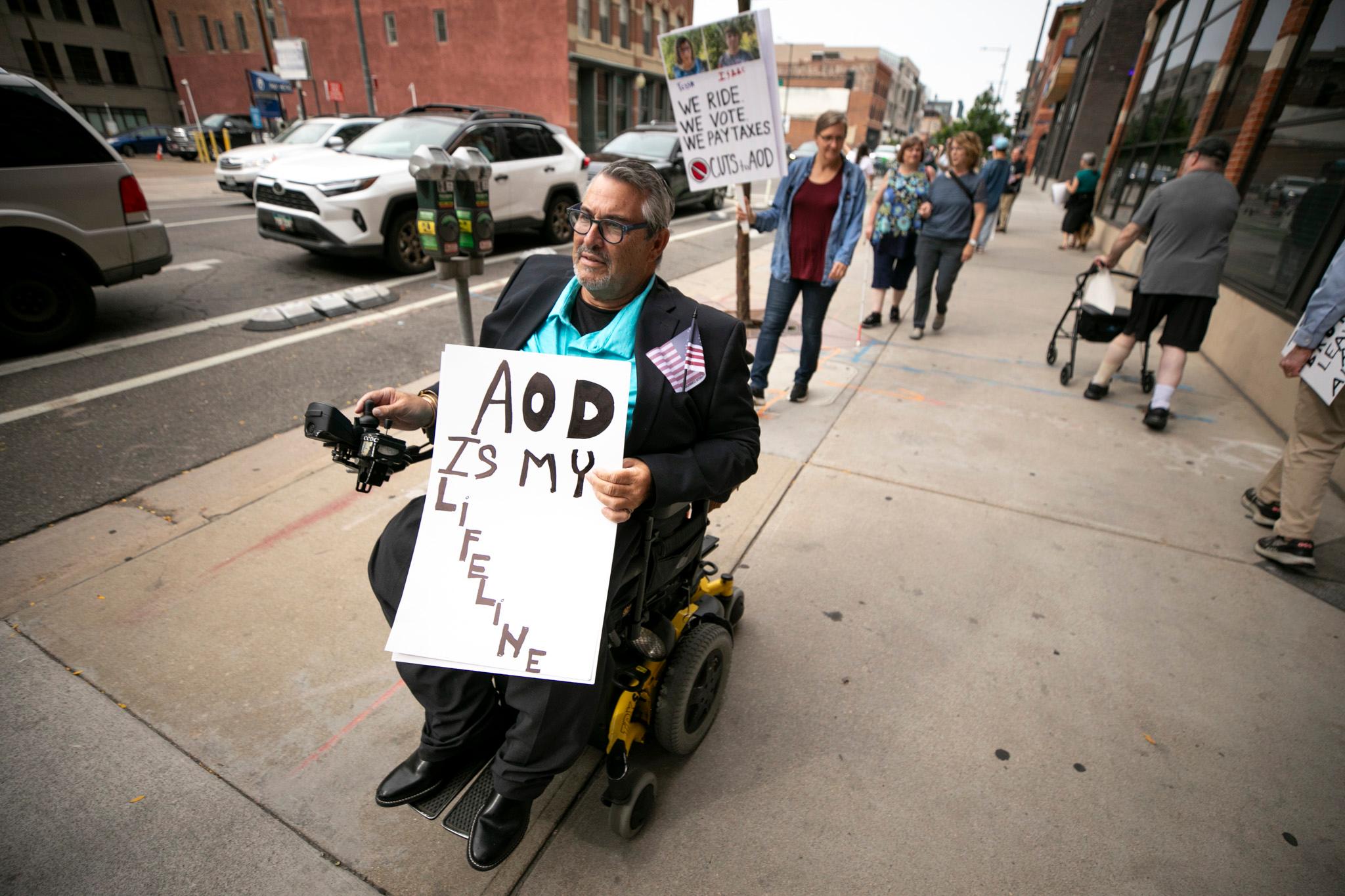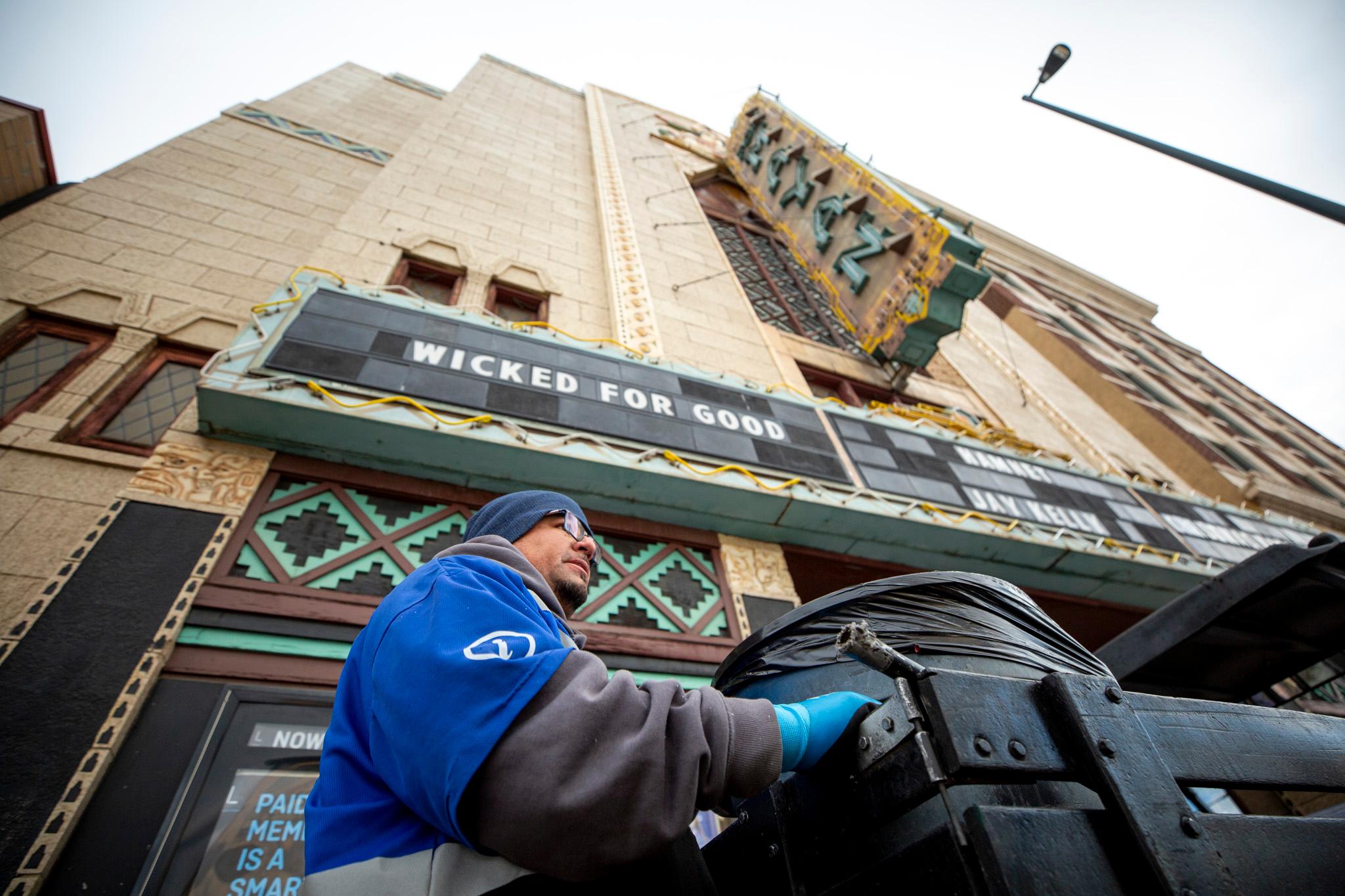Lawmakers on Thursday introduced the latest version of the red-flag bill in the General Assembly, putting in place legislation advocates say can help protect the lives of first responders and people in crisis.
House Majority Leader Alec Garnett of Denver, state Sen. Lois Court of Denver and state Rep. Tom Sullivan of Centennial are among the bills co-sponsors. The bill would allow for extreme risk protective orders, which temporarily removes firearms from a person a judge determines to be a threat to themselves or others.
The lawmakers were joined by law enforcement officers and advocates during Thursday's announcement at the capitol.
"It's been said, but I'll say it again. This is about one thing: Public safety, saving lives," Court said.
Sullivan is the father of Alex Sullivan, who was killed during the Aurora theater shooting in 2012. Sullivan wore his son's jacket while he spoke in favor of the bill.
"I'm not doing this for Alex and my family, I'm doing it for yours," Sullivan said. "Because this is as bad as you think it is. Watching your child's body drop into the ground is as bad as it gets. And I'm going to do everything I can to make sure that none of you have to do that."
The bill's introduction has been a long time coming. It's named in honor of slain Douglas County Sheriff's Deputy Zackari Parrish, who was killed by a mentally ill man in 2017. It was announced on the one-year anniversary of the Stoneman Douglas High School shooting in Florida, where 17 people, including 14 students.

It was among the bills Democrats, now in control of both chambers, had on their to-do list for the legislative session after a similar bill failed last year. That bill was defeated by Republicans opposing it on Second Amendment grounds.
Boulder County Sheriff Joe Pelle said he was grateful for Garnett and delegation for their support and working to provide "a tool for law enforcement" in the state. Pelle said the law is for people in "an acute behavioral health crisis" that have become a danger to themselves or the community.
With Republicans basically out of the picture this year, it's now more likely to end up on Gov. Jared Polis' desk.
The governor said in an interview with Denverite shortly after his election in November he was looking forward to working with the legislature to craft a bill that would work for Colorado.
Last year's bill had bipartisan support, including backing from high-profile Republicans like then-state Rep. Cole Wist (whom Sullivan unseated last year) and District Attorney George Brauchler.
But that was last year. Wist isn't a fan of this year's version of the bill.
"There are significant material differences in this year's bill," Wist said in a tweet on Thursday. "Notable are the longer time periods and the ill-advised shifting of the burden of proof onto the person seeking to restore their rights. I am opposed and urge the General Assembly to vote no."
Wist may be in the minority in his party. A poll of Republican voters in Colorado released Thursday by Magellan Strategies showed strong support, with 60 percent of respondents saying they support a red-flag bill.
The no-compromise Rocky Mountain Gun Owners organization issued a release on Thursday calling the bill dangerous. One of the organization's members attended Thursday's announcement.
The organization said the bill is designed to "strip gun owners of their lawfully owned property, without due process," in violation of the Second and Fifth Amendment.
"It's unfortunate House Democrats picked the anniversary of a major school shooting to push a bill weaponizing police against law-abiding citizens instead of the criminals who perpetrate these attacks," Rocky Mountain Gun Owners executive director Dudley Brown said in a release. "The bill will do nothing to prevent another Columbine, Aurora or Parkland."
Here's what the bill does.
Garnett said extreme risk protective orders can be obtained by a family member or law enforcement officer who comes before a judge and asks for an order to temporarily remove a firearm. The bill introduced Thursday would allow this period to be 14 days if the order is granted by a judge.
Within those 14 days, a full hearing is scheduled. The bill requires counsel be provided to the person whose firearms are being removed.

"This is a great way of making sure that the respondents knows their rights and has somebody in court to stand with them," Garnett said.
At the hearing, a judge can recommend a full extreme risk protective order be put in place, which can last up to 364 days. If this is done, a person can petition the court to have it removed. The burden now falls on the person who tries to get their guns back to prove they're stable enough to have the order removed, instead of law enforcement.













